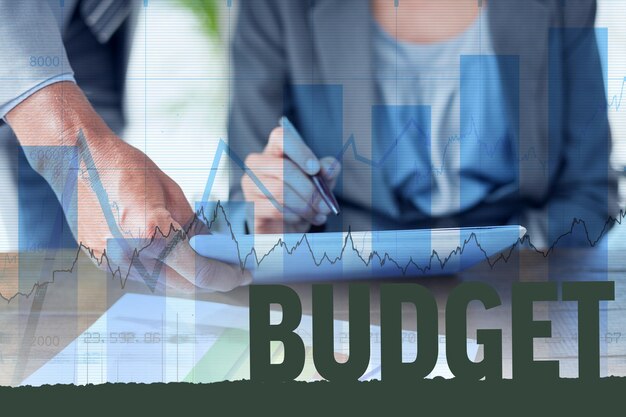How Economic Indicators Influence Investment Decisions for Lower-Income Americans
When it comes to making investment decisions, economic indicators play a crucial role—especially for lower-income Americans who may be navigating tighter budgets and economic uncertainties. But what are these economic indicators, and why should they matter to you? Understanding these concepts can empower you, providing insights into making more informed financial choices. Let's explore the landscape of economic indicators and their influence on investment decisions tailored to lower-income households.
Economic Indicators: The Basics
Economic indicators are quantitative and qualitative factors used by economists and investors to evaluate the health of the economy. These indicators can reveal the economic trajectory and help predict future outcomes.
Key Types of Economic Indicators
- Leading Indicators: These are predictive indicators that signal future events. Examples include stock market performance, building permits, and new business start-ups.
- Lagging Indicators: These confirm trends seen in leading indicators but reflect changes after the economy has started to follow a particular trend. Unemployment rate and corporate earnings reports are classic examples.
- Coincident Indicators: These move simultaneously with the economy. Personal income levels and GDP (Gross Domestic Product) are coincident indicators.
Why Are Economic Indicators Important for Lower-Income Investors?
For lower-income individuals, understanding economic indicators isn't just academic—it holds practical significance. Here's why:
- Budget Planning: Economic conditions can directly affect personal finance management and budgeting.
- Investment Timing: Strategic investment timing can enhance returns, particularly important when funds are limited.
- Risk Assessment: Assessing economic stability helps in understanding which investments carry more risk.
Unpacking Economic Indicators: What to Watch
Gross Domestic Product (GDP)
GDP measures the economic performance of a country. It represents the total value of goods and services produced over a specific time. A growing GDP indicates a healthy economy, which could enhance confidence in investing.
Inflation Rates
Inflation gauges the rate at which the general level of prices for goods and services rises. High inflation may erode purchasing power, impacting savings and investment values.
Unemployment Rates
The unemployment rate is a crucial lagging indicator that shows the health of the labor market. Lower unemployment often signals a robust economy, making this an important factor for evaluating job security and potential investments.
Interest Rates
Interest rates directly influence borrowing costs. When interest rates are low, credit is cheaper, encouraging spending and investment. Conversely, high rates discourage borrowing and investment.
Adjusting Investment Strategies Based on Economic Indicators
Diversifying Investments
Diversification is not just for high-net-worth individuals—it's a crucial strategy for all investors, especially those with lower incomes. By spreading investments across various sectors, you can mitigate risk. Diversification need not be costly; simple tactics like investing in index funds can offer broad market exposure.
Emphasizing Long-Term Investment
Economic indicators fluctuate, but focusing on long-term goals helps buffer against temporary economic downturns. Long-term investment can work well with dollar-cost averaging, a strategy more attainable for those with a steady, even if modest, income.
Building an Emergency Fund
Before diving deep into investments, ensure that an emergency fund is in place. It acts as a financial safety net, providing liquidity in case of unexpected events. This makes it easier to make calm, logical decisions about investments, even when economic indicators suggest instability.
Practical Steps for Lower-Income Investors
- Education: Familiarize yourself with basic financial literacy and market trends. Free educational resources and community workshops can offer valuable insights.
- Setting Realistic Goals: Establish clear, achievable financial goals. Whether it's retirement savings or children’s education, knowing what you're aiming for makes navigation more straightforward.
- Utilizing Financial Tools: Leverage financial apps and platforms that offer market assessments or portfolio tracking, many of which provide free or low-cost options.
A Visually Distinct Summary: Key Takeaways for Investment Strategy
📊 Key Economic Indicators for Investors:
- GDP: Tracks the economic health and growth. Higher GDP often signals a good time to invest.
- Inflation Rates: Monitor to ensure investment gains aren't eroded.
- Unemployment Rates: Low rates could mean better job security and a healthier market.
- Interest Rates: They affect the cost of borrowing and investing; lower rates usually favor investments.
💡 Practical Tips for Lower-Income Investors:
- Diversification: Avoid putting all eggs in one basket to reduce risk.
- Long-Term Focus: Stick with investments despite short-term economic shifts.
- Emergency Fund: This helps maintain investment portfolios during economic volatility.
- Financial Education: Prioritize ongoing education for better decision-making.
Navigating Economic Uncertainty: Empowering Lower-Income Investors
Understanding and interpreting economic indicators can serve as a robust framework for making sound investment decisions—especially crucial for lower-income Americans. These individuals can adopt strategies that prioritize long-term gains while safeguarding against economic volatility.
Remember, the goal is not to predict the economy accurately but to be informed and ready to make adjustments as economic conditions change. Equipped with knowledge and strategic planning, lower-income investors can take meaningful steps toward securing their financial futures.
Your financial journey might seem daunting, but understanding economic indicators and their implications can transform outcomes. By aligning investments with informed insights, you're not just keeping pace with the economy—you’re steering your financial ship confidently through its waters.

Related Topics
- A Beginners Guide To Investing In Gold And Other Precious Metals On a Budget
- A Comprehensive Guide To Bridge Loans: How They Can Be Helpful For Lower Income Americans
- A Comprehensive Guide: Growth Stocks Versus Value Stocks
- A Comprehensive Guide: The Impact Of Bankruptcy On Homeownership And Mortgage Options
- A Guide For Lower-Income Americans: Making Your Savings Last A Lifetime
- A Guide: Understanding Different Types Of Bank Accounts
- A Guided Journey: Applying For a Mortgage Through Your Bank
- A Helping Hand: Government Assistance Programs For First-Time Home Buyers
- A Practical Guide: Understanding And Reducing Your Property Tax Assessment
- A Simple Guide To Rent-to-Own Home Contracts For Lower-Income Americans
